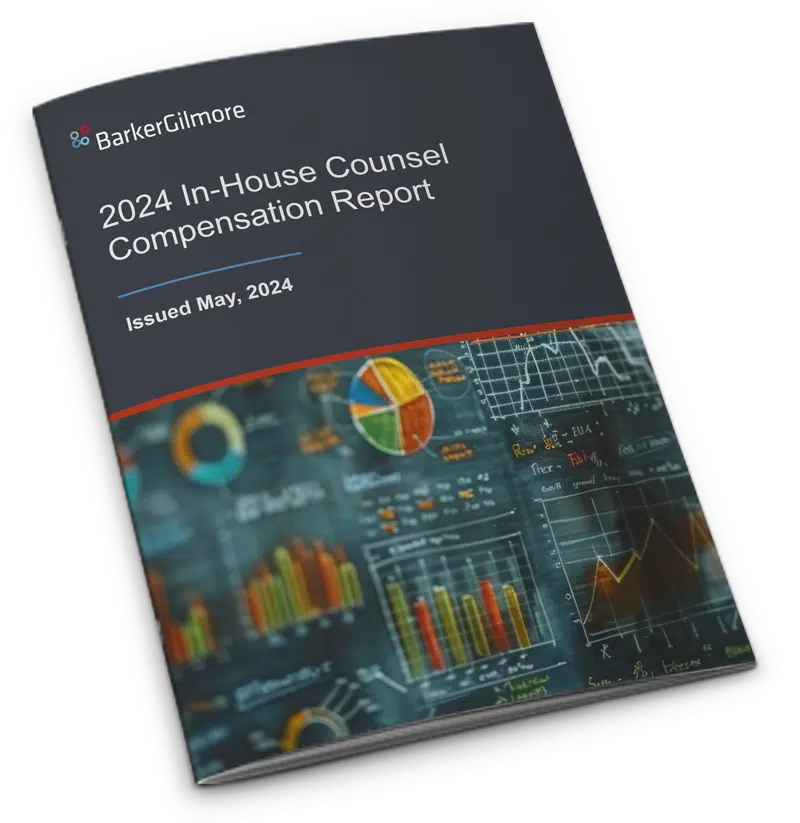Contributors: Steve Bell | John Gilmore | Max Gelernter
Between audit, training, information governance, privacy, and ever-changing regulations, Chief Compliance Officers (CCOs) are vulnerable to receiving and accepting many tasks. And as they have done before, CCOs continue to show they are capable and accommodating as their roles expand.
In February 2023, BarkerGilmore interviewed 25 CCOs in various industries nationwide to learn about the challenges facing CCOs in 2023. Throughout the interviews, the CCOs highlighted three trends that contributed to the expansion of their roles:
- Environmental, Social, Governmental (ESG) programs and initiatives
- Enterprise Risk Management (ERM)
- A new work culture
1. Environmental, Social, and Governance Programs
Several CCOs emphasized the new and evolving ESG space. Customers, employees, and regulators want to see effective ESG initiatives. Consumer pressure also has an economic impact because many consumers consider a company’s ESG initiatives in deciding whether to make a purchase. Thus, companies can use ESG programs to build customer relationships and trust.
CCOs are now finding themselves as active members of ESG committees as they are in a unique position to help identify ESG risks, develop ESG policies, and ensure compliance with regulations affecting ESG.
The CCOs reported the following changes in their roles:
- CCOs can help ensure organizations make incremental ESG goals and monitor progress. As part of their ESG initiatives, companies have started setting goals they plan to accomplish in 10-20 years. ESG is an ongoing journey, as one CCO pointed out, and companies may never finish the journey. However, how are organizations ensuring they meet these goals as the executive team and governmental initiatives change? CCOs will play a pivotal role in ensuring organizations make incremental goals and monitor the goals quarterly to see if the company is on track.
- ESG regulatory and reporting requirements are evolving but will likely fall on the CCO to ensure compliance. One CCO highlighted the pending Securities and Exchange Commission rules, which will require corporations to disclose ESG metrics. Another CCO indicated that banks were beginning to require ESG programs. The consequence of these changes is that ESG functions may move under the oversight of the CCO if a company is not large enough to create a separate ESG function.
2. Enterprise Risk Management (ERM)
Another trend CCOs observed is that ERM is becoming a more significant portion of their role. CCOs have traditionally identified compliance risks and mitigation strategies for those risks. Now, the CCO’s role in ERM has expanded to include analyzing risk in strategic initiatives, cybersecurity, ESG, and many other areas.
The CCOs noted:
- In a global economy, the risks CCOs have to be aware of change regularly as events occur worldwide. In 2022, after Russia invaded Ukraine, compliance officers were tasked with working to comply with regulatory requirements and sanctions. Currently, CCOs have to navigate new situations with little guidance. For example, CCOs are now facing the complications of ransomware attacks carried out by sanctioned groups and questioning whether companies can pay to have data released.
- Third-party risks and monitoring needs are continuing to rise. CCOs must consider the risks of partnering with third parties when facing additional reputational, regulatory, and financial risks. Cybersecurity, data security, and ESG are three more factors CCOs have to consider in choosing vendors and understanding the risks they bring. In addition, these new challenges affect how the company monitors the third parties to minimize their risk to the corporation.
- Companies must include CCOs in strategic discussions at the start of the conversations. Doing so allows CCOs to evaluate risk and put policies and procedures into place to protect the company. This marks a change from the past, where business leaders may not have considered including CCOs at that step. It also means the work of the CCO continues to expand.
3. New Work Culture
Corporations have navigated lockdowns, remote work, hybrid work, requests to return to the office, the Great Resignation, and layoffs in the past three years. These changes, combined with the arrival of a new generation of workers, have led to a new work culture.
The concerns the CCOs highlighted included:
- Members of Generation Z (Gen Z) prefer to voice concerns and advocate for change, leading to additional resources needed for investigations. Gen Z comprises individuals born between 1997 and 2012, meaning members of Gen Z include 16-year-olds getting their first jobs and 26-year-olds settling into post-college careers. As one CCO noted, the influx of Gen Z into the workforce at the company led to an increase in Title VII employment discrimination claims and investigations.
- CCOs must be able to articulate and mitigate compliance risks with remote or hybrid work arrangements. Beyond the regulatory challenges remote work has brought, one CCO noted that the concept of “misconduct” has changed in a hybrid or remote work model. Online workplace harassment, boundaries around employees’ personal time, and discrimination in approving or rejecting requests for remote or hybrid work are some risks that could arise in the new work environments. Because of these changes, CCOs have a greater role in identifying and mitigating the risks associated with the new work dynamics.
- Layoffs have led to decreasing morale, affecting an organization’s culture of compliance. Several companies have implemented layoffs in the last few months. While compliance departments have not seen a workforce reduction, the layoffs still affect the CCOs’ work. One CCO recognized that layoffs could lead to a concern regarding the morale of the entire company. When people are scared they may lose their jobs, they tend to speak up less, and there are fewer reports to compliance hotlines. Speed in completing their jobs may win out for those workers over compliance concerns. Conducting and resolving investigations also become more onerous.
- Compliance staff members are in demand, forcing companies to be more competitive and create favorable work environments. The current regulatory and economic challenges have created competition for talented compliance staff. The market is excellent for compliance employees who want to switch companies. Moreover, because some companies cannot provide raises to match the salaries offered, compliance staff are switching companies to get a salary increase. One CCO reported that some individuals had moved for 50% salary increases. To combat turnover, CCOs must create work environments where compliance staff are content and proud to be a member.
Staying on top of trends to make sure CCOs are prepared for new challenges is critically important. We advise compliance leaders on the latest industry challenges and ensure our clients make successful hires by delivering forward-thinking talent. Our proudest measured metrics of success include stick rate, diversity placement percentages, and overall customer satisfaction.
To inquire about in-house counsel or compliance officer executive search and/or coaching, please contact BarkerGilmore at (877) 571-5047 or via email at info@barkergilmore.com.
Connect with a legal recruiting advisor
* indicates required fields






